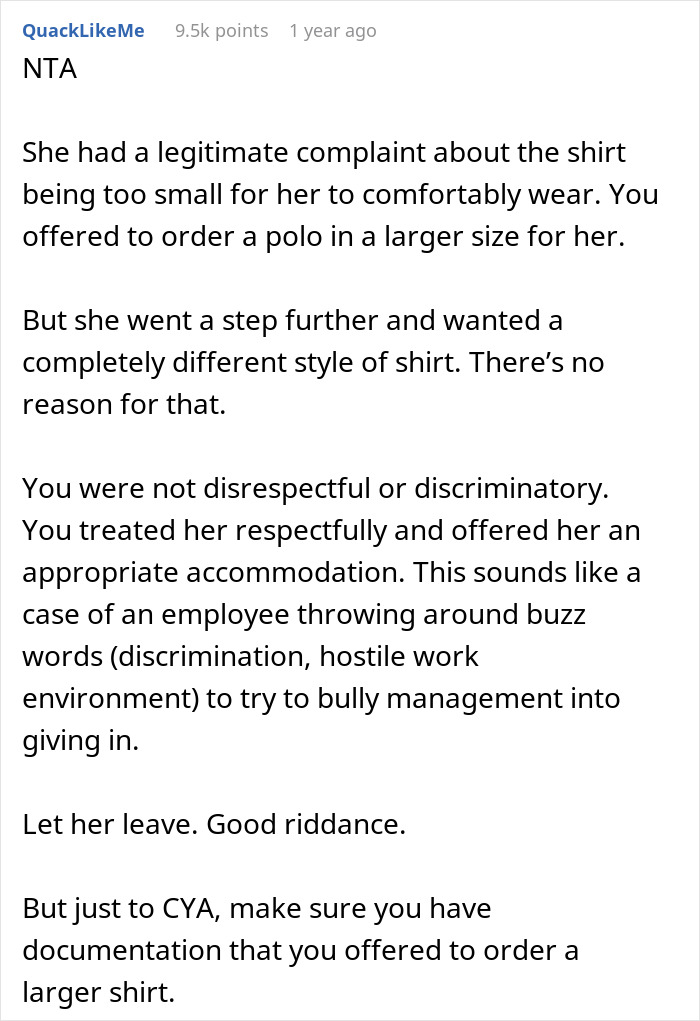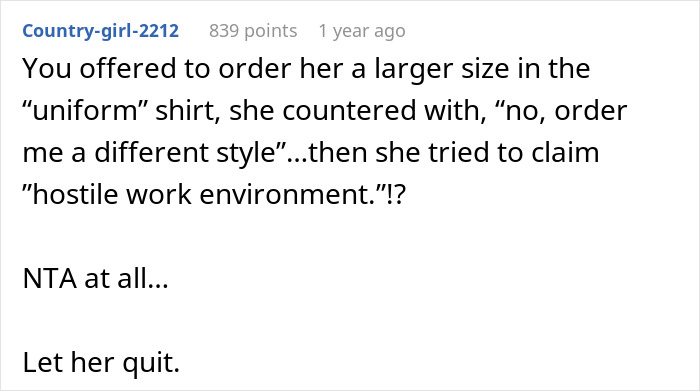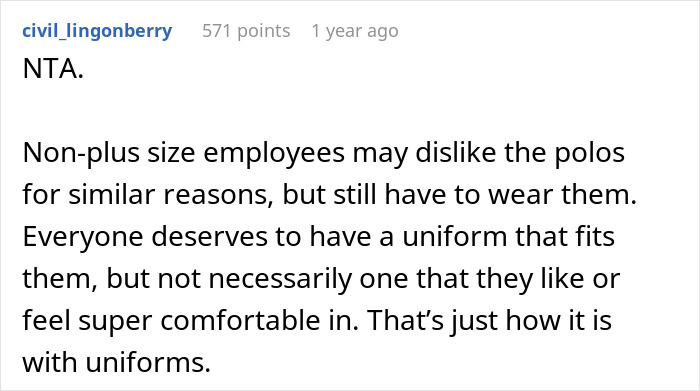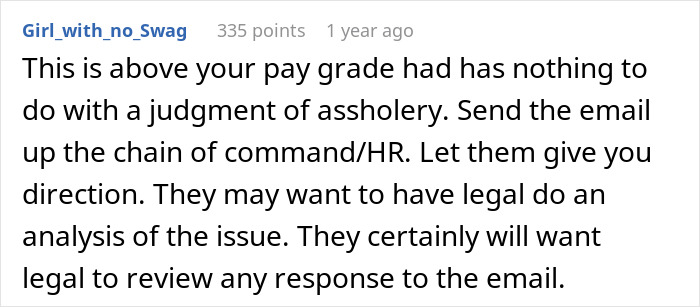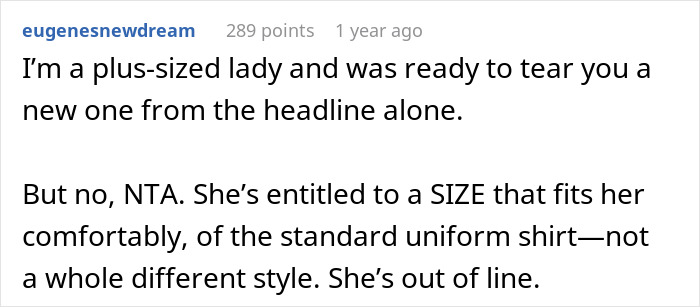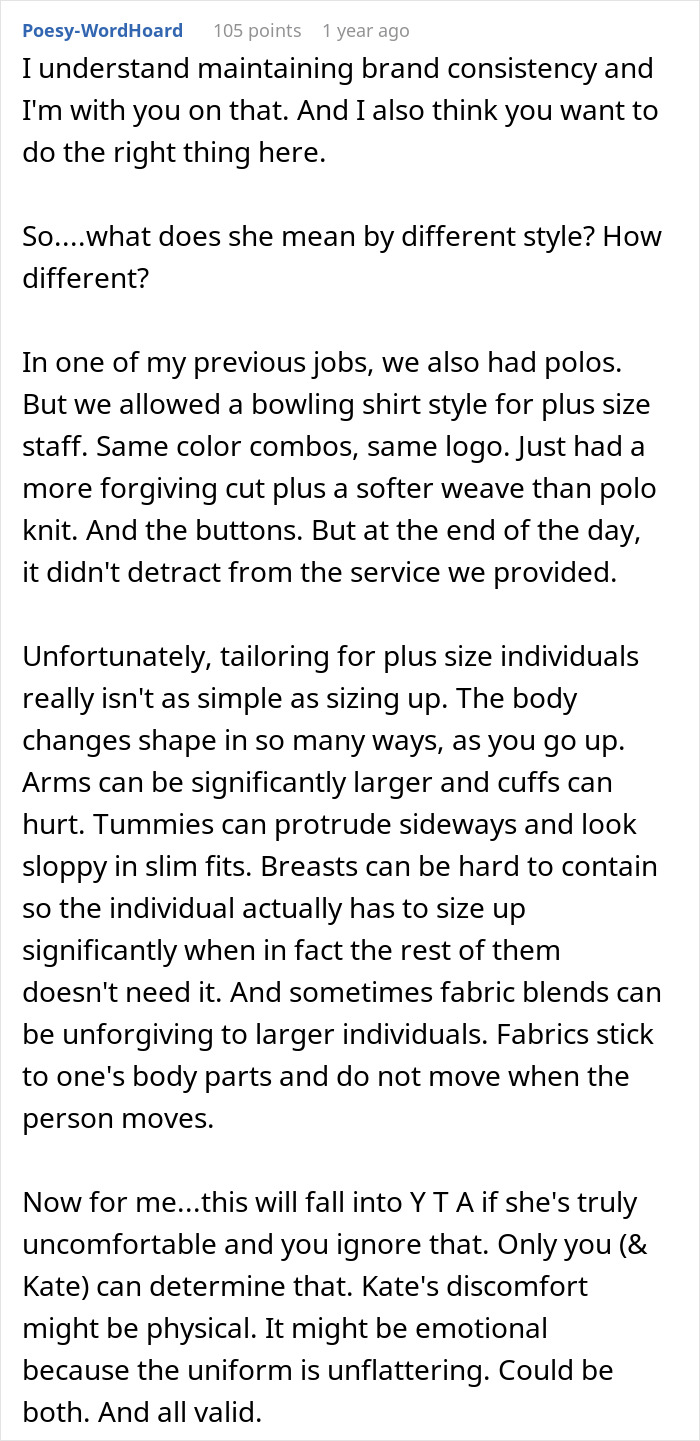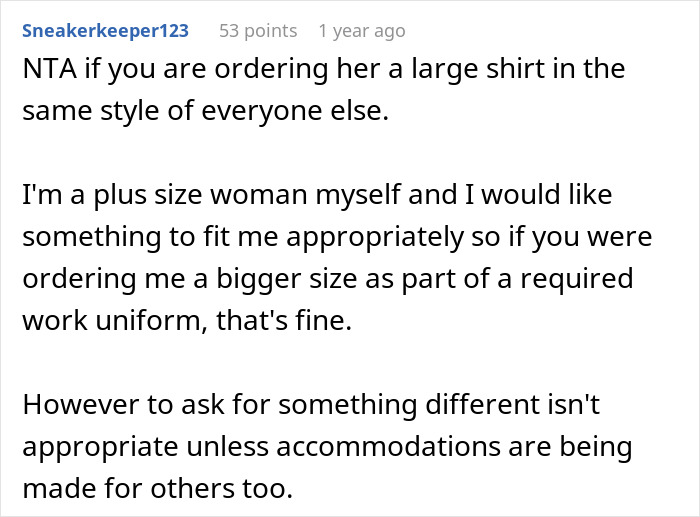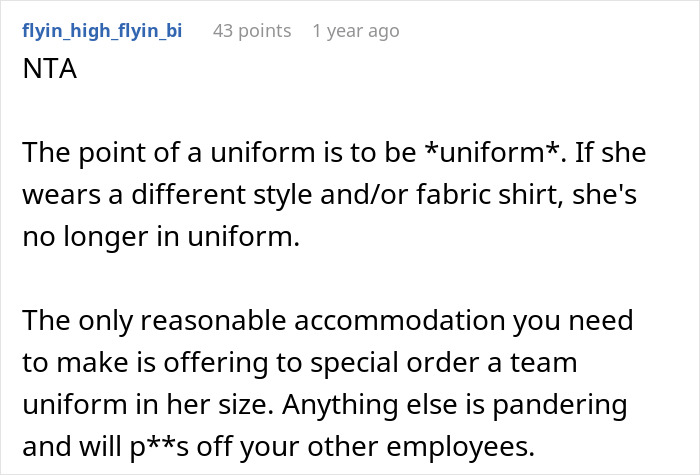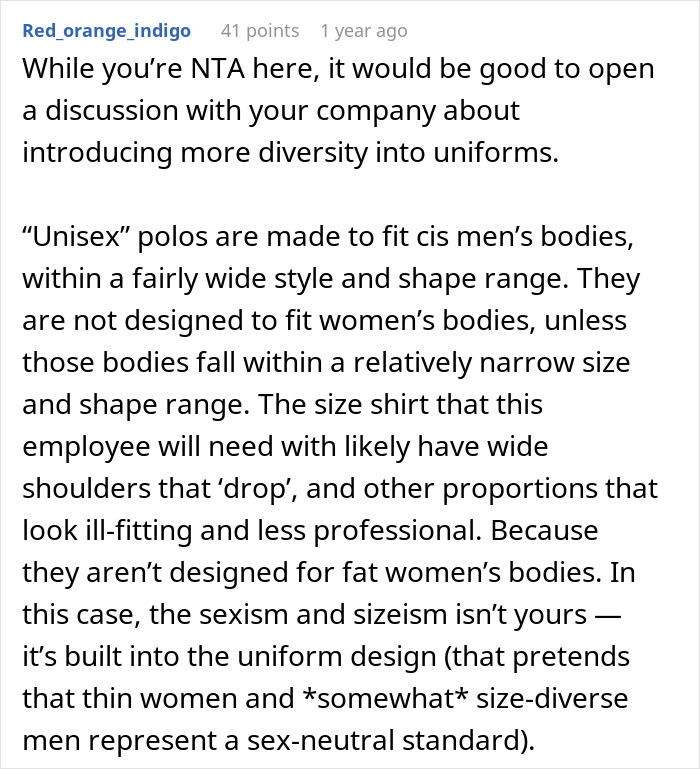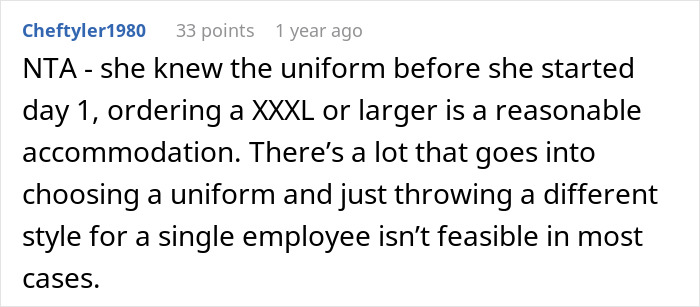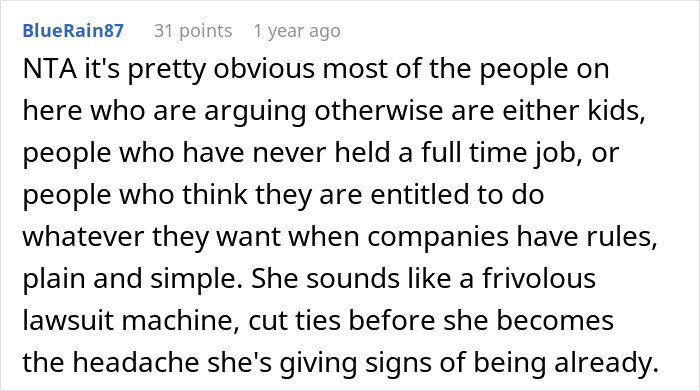Work uniforms are a very contentious topic. Some employees love ‘em and understand that they can create an atmosphere of professionalism. Others, however, think that they’re far too restricting and stifle individuality. Some even go as far as to make a huge fuss and look for discrimination where there is none.
That can be a huge headache for your well-meaning manager. Case in point, redditor u/whistlerblue16 opened up about how they handled a situation at work. Their plus-size employee wanted a completely different style of shirt and got upset when her demands weren’t met. Read on for the full story.
Uniforms have their pros and cons, but dress codes usually apply to all employees equally

Image credits: seventyfourimages / envato (not the actual photo)
One manager shared how they refused to make a dress code exception for a dissatisfied employee
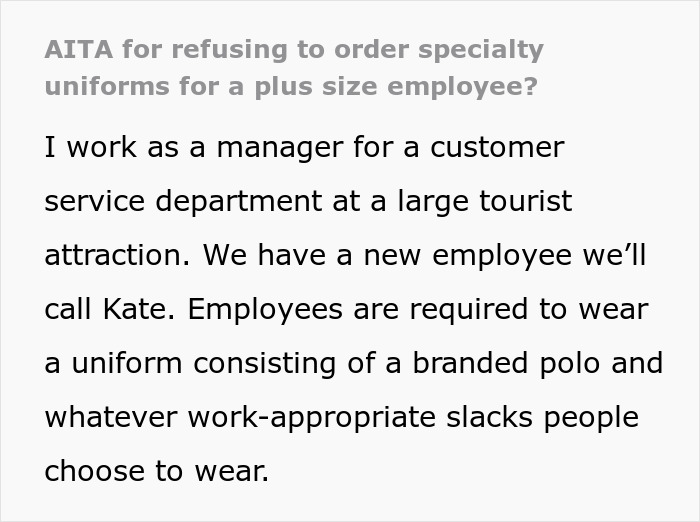
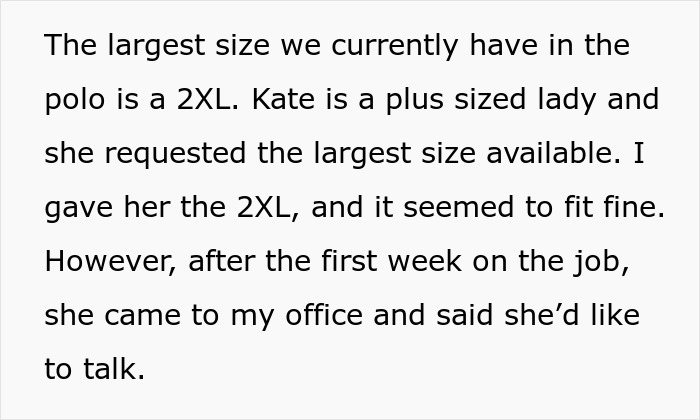
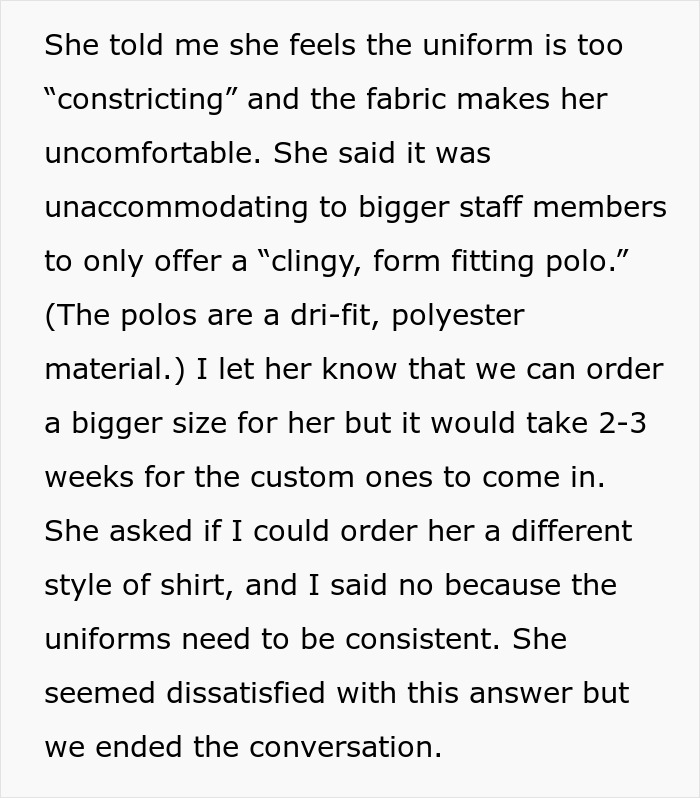

Image credits: Prostock-studio / envato (not the actual photo)

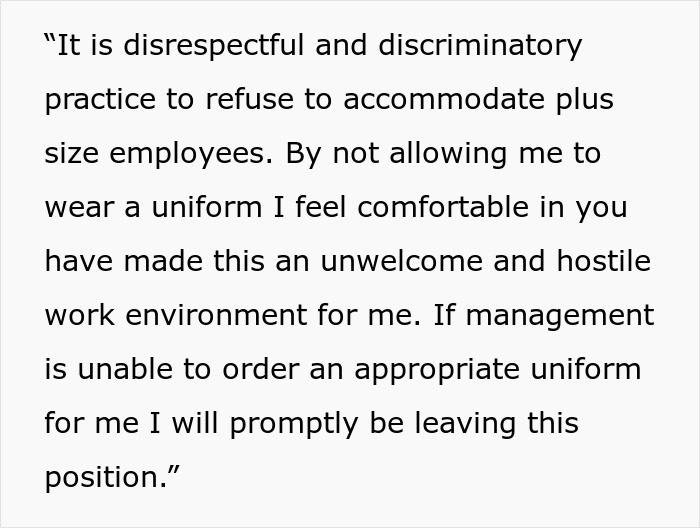
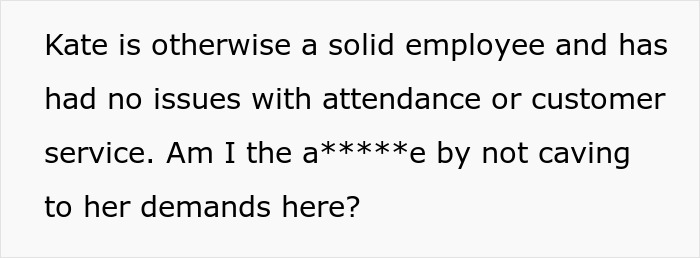
Image credits: whistlerblue16
If everyone were to be granted an exception to the dress code, there would be no point in having uniforms at all

Image credits: Amina Filkins / pexels (not the actual photo)
The entire point of a uniform is that everyone wears the same clothes. If some members of staff are required to wear the uniform while others are allowed to do whatever they like, it breaks the entire perception of unity and cohesion. Or, to put it bluntly: either everyone wears the uniform or nobody does.
Asking for special treatment (e.g. to wear a different style shirt) is unfair to your colleagues. It also means that your manager now has to deal with a tense situation at work. One which could have easily been avoided.
Unless they’d personally written the company’s policy on the approved dress code, they probably don’t have the power to change the rules. So they’re only left with one option—asking their coworkers to kindly comply with the rules.
Now, don’t get us wrong, there should be no tolerance for discrimination in the workplace. However, in this particular case, it doesn’t appear like there was any of that going on.
The manager was happy to order a larger shirt for the worker, but they wouldn’t budge on the style of the shirt. A uniform is a uniform, and the same rules apply to everyone.
Of course, not all dress codes are made equal. Some of them are overly strict and impractical. Others are unfair and actively discriminate against specific employees.
Truly problematic dress code rules ought to be addressed and changed

Image credits: Ketut Subiyanto / pexels (not the actual photo)
For example, as ‘People Management’ points out, employers should not impose different standards on women and men without the proper justification.
The dress code policies should not be identical; however, the standards ought to be equivalent. A big red flag would be demanding that women must wear make-up, skirts, or a specific hairstyle if there’s no similar requirement for men.
Ideally, you want to create an atmosphere of respect and inclusivity at the company so that your employees feel safe and empowered to do their jobs well. Frankly, workers detest it when there are blatantly different standards for different people.
It’s hard to say what the future of dress codes will look like. It’s possible that workplace uniforms will survive and even thrive in industries that require constant contact with clients.
At the same time, things could take a very different turn. Let’s not forget that just a couple of decades ago, wearing jeans to work would have been frowned upon in some larger, more prestigious corporations.
These days, however, (business) casual jeans are usually accepted very widely. Some businesses have relaxed their dress codes even more in the wake of the pandemic, with so many professionals still working remotely or having embraced a hybrid system.
The author clarified a few details in the comments
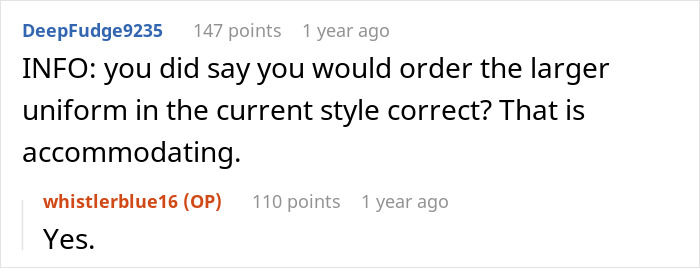
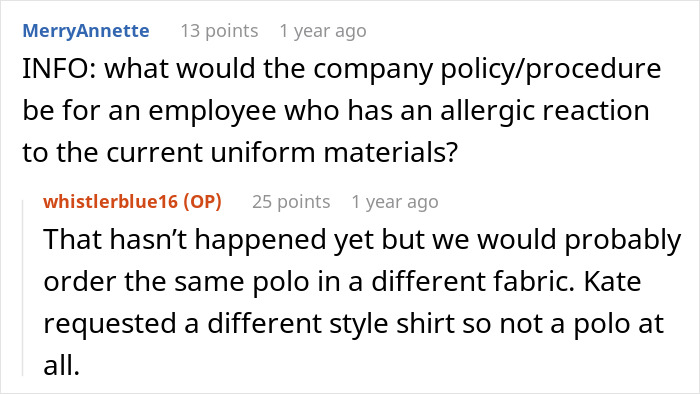
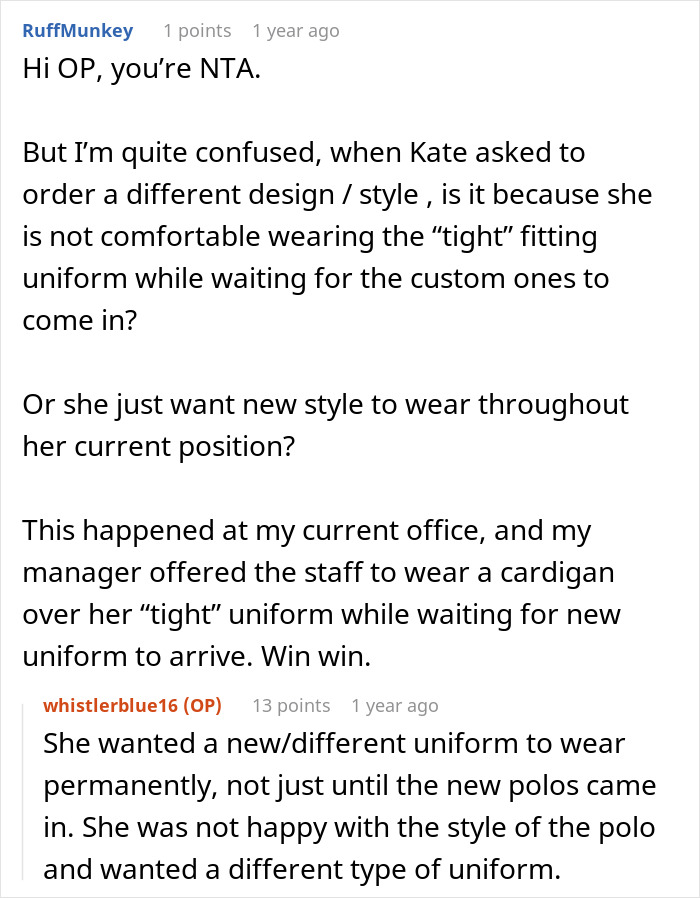
Some readers wanted to show their support for the manager. Here’s their take on what happened
